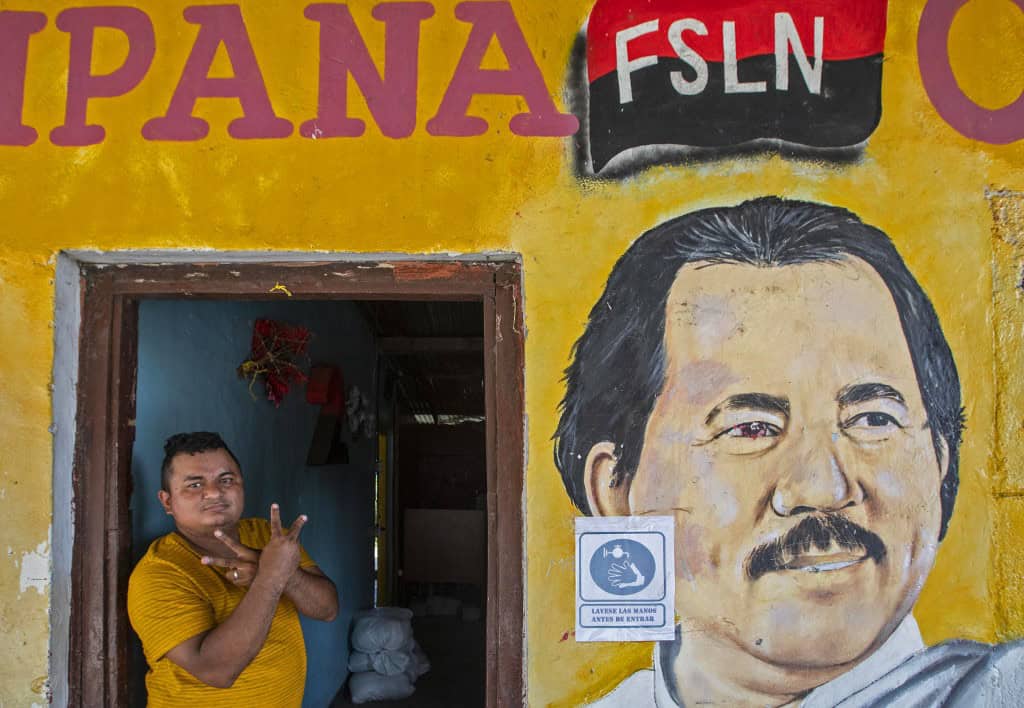To the chants of “Daniel! Daniel! Daniel!” President Daniel Ortega last weekend commemorated the 31st anniversary of the Sandinistas’ “Tactical Retreat to Masaya” (Repliegue Táctico) – a historic military maneuver that preceded the final offensive and triumph of the revolution in July 1979.
Yet other than a few scattered references to the historical event, which Ortega was not a part of in 1979, the Sandinistas’ celebration of the Repliegue focused more on Ortega’s cult of personality and reelection effort than on commemorating the past. The traditional 28-kilometer march from Managua to Monimbó, Masaya was conducted as a celebration of Ortega and First Lady Rosario Murillo, who treated the event as if it were a victory parade in their honor.
Surrounded by hundreds of police officers, armed Sandinista security and personal “blue shirt” bodyguards, Ortega and Murillo walked through the streets waving to supporters who lined the sidewalks waving flags and yelling the president’s name. The 64-year-old Ortega once again completed the walk. But unlike past years, when the political rally was at the end of the trek in Monimbó, this year Ortega gave his speech in Managua before departing on the march.
Also unlike past years, when Ortega has made some of his most fiery and deliberate speeches at the Repliegue event, this year’s address from the president could be best described as unfocused and erratic. Indeed, Ortega’s speech sounded like a stringing-together of the kind of unrelated 20-second sound bites that the party will edit into a series of short TV ads for his reelection campaign.
Ortega began his speech by recognizing several Sandinista revolutionaries who participated in the original Repliegue, but then went for the cheers of the crowd by hailing former three-time world boxing champ and mayor of Managua Alexis Argüello, who committed suicide one year ago.
Ortega then spoke about his government’s commitment to literacy and his appreciation for the Cuban health brigades. He mentioned Edén Pastora’s efforts to drag the San Juan River. He talked about the importance of exports to the United States and Venezuela. He talked about the rains in Managua, the importance of youth, and social housing for the poor. He talked about property title problems in the community of Las Minas, and the rights of state pensioners.
And all that was just in the first half of his speech. But clearly more important than the jumble of loosely related messages in his unscripted address was the imagery of the event: Ortega as leader of the people, on a stage flanked by heavy security and above a throng of thousands of faithful, flag-waving supporters who chanted his name.
It was clearly and simply a campaign event that had little to do with history or message, and everything to do with Ortega’s ambitions.






